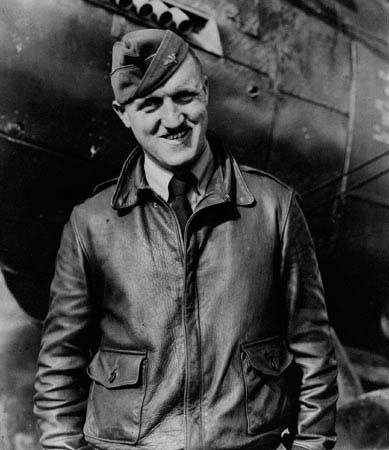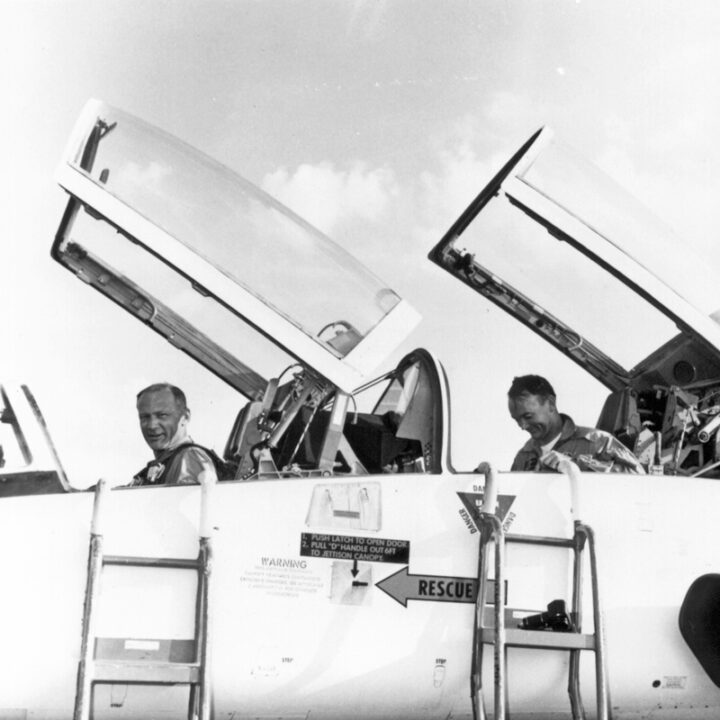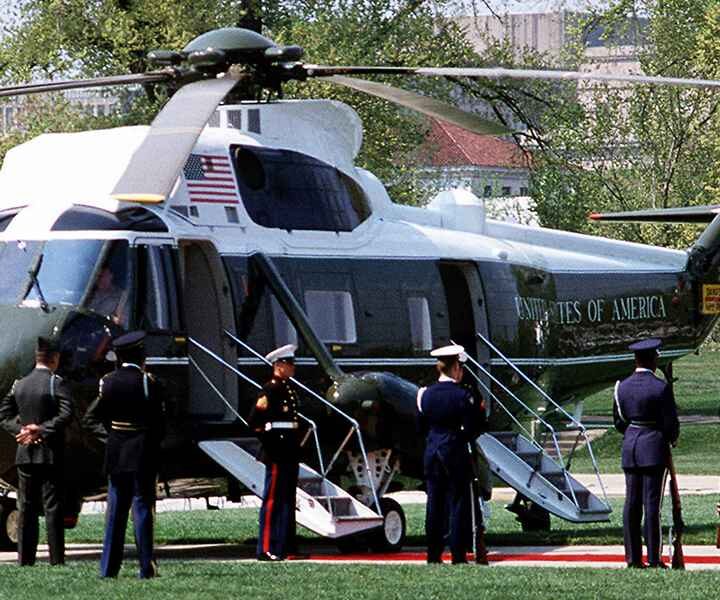Photo credit: Library Special Collections, WKU
Mary Lucas, Gilbert Calhoun and Dr. Jonathan Jeffrey have published a fascinating look at one of our local aviation heroes. The book is entitled That Perfect Feeling in the Air, the Life of Victor Herbert Strahm.
Victor Herbert Strahm was born in 1897 to German immigrant and distinguished musician Franz Strahm, who had immigrated to Nashville in 1891 and married a local girl, Alice Jones. In 1910, the family moved to Bowling Green, when Franz was hired by Henry Hardin Cherry to head the music department at the new Western Kentucky State Normal School (at a salary of $2,000 per year). The Strahm family purchased a house at 1349 College St., and Franz played the organ at The Presbyterian Church on State Street. Bowling Green had a population of about 9,000 at this time. Much of what we know about Strahm’s life comes from a fascinating collection of letters and other memorabilia donated by his mother to the Kentucky Library in 1945.
When the U.S. declared war in 1917, young Victor Strahm was an engineering student at the University of Kentucky and despite his German heritage he enlisted a few weeks later in the U.S. Army. He soon joined the fledgling Army Air Service after seeing an advertisement asking for college students with training in electrical engineering. Victor received flight training in the U.S. and then in France before being assigned to the 91st Aero Squadron and charged with carrying out aerial photographic reconnaissance to supplement land intelligence. Planes were involved in frequent dog fights. In a letter written late in 1918, Victor told his parents that: “I had a beautiful little scrap yesterday with five Hun bi-planes and they shot over 25 holes in my plane, not very fatal, though.” During his flights in this war, Victor shot down a total of five German airplanes. He received many awards for his service, including the Distinguished Service Cross, and a photo reproduced in the book shows Victor posing with Prince Edward of Great Britain and Gen. Billy Mitchell in front of a crashed airplane near Coblentz. Victor continued to be involved with flying during the period between the wars and other photos show him with Eddie Rickenbacker and with Charles Lindbergh.
Victor Strahm also performed heroically in World War II. He joined the Tenth Air Force in India and flew some missions “Over the Hump” from Calcutta over the Himalayas to supply nationalist Chinese forces in China. On the last day of 1942, Gen. Lewis Brereton gave a staff party in Cairo and future WKU professor Lowell Harrison reported back to his college newspaper: “Brigadier General Victor Strahm, Chief of Staff to General Brereton … enjoyed his first days of leave for many months during the Christmas season. Natives of a Northern African city were amazed as a typical American Christmas unfolded in the shadow of the Pyramids; Christmas trees, presents, carols, even Santa Claus.” Strahm received the Legion of Merit for his service in the Desert Campaign and his Ninth Air Force was involved in bombing in Italy and Romania before moving to England to prepare to retake France. Brereton’s diaries are a major source for this period and for 1944 Strahm’s diary provides his personal insights. For example, his entry for April 21 of that year states: “Giving Axis hell in our raids. 500 tons in 30 hours. That is a lot of hell.” Although Strahm hoped for promotion to major general, that never happened. He suffered a heart attack in 1953, was grounded for health reasons and soon retired.
Book review used for this biography was written by Dr. Richard Weigel, History Department WKU.




